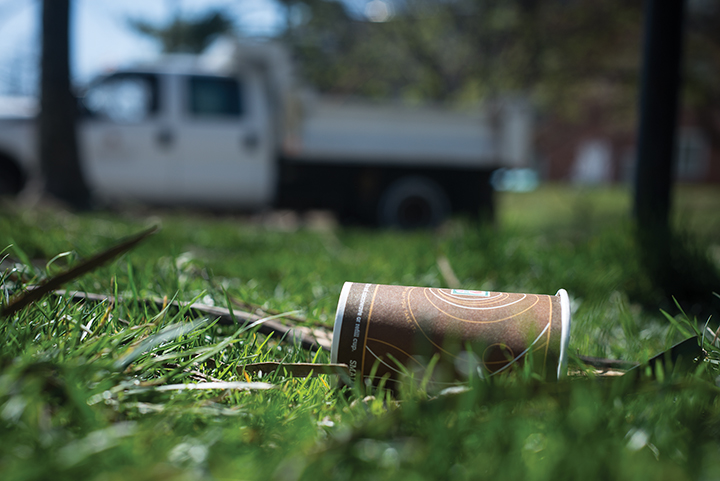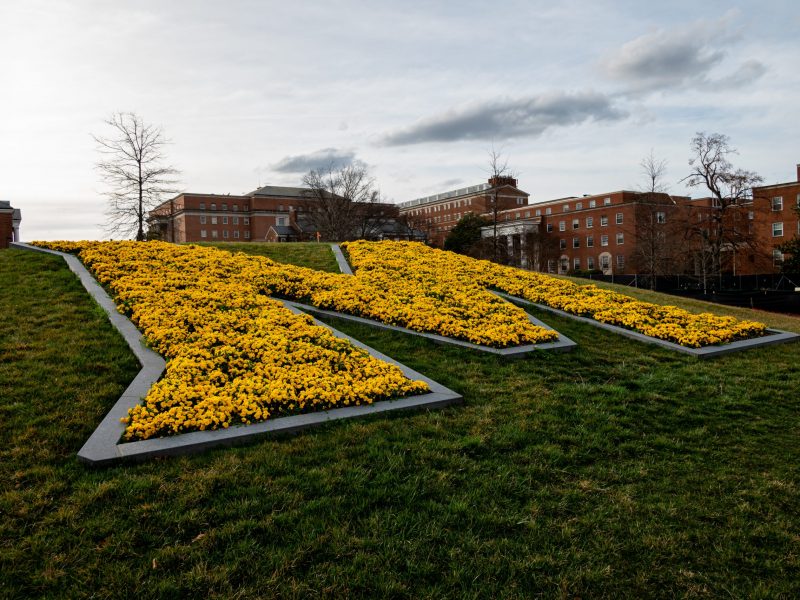College Park officials and University of Maryland students are aiming to reduce litter in the city and on the campus by bringing in more trash cans, raising awareness and hosting small-scale community cleanups.
District 2 Councilman P.J. Brennan is working with the City Council to budget money for additional trash and recycling cans. Several areas currently don’t have enough, including on different paths in Old Town, Brennan said, adding that the improper placement of many trash cans in the city contributes to the problem of litter.
“It’s this idea where people feel that it is OK to just throw something on the ground because it is more convenient for them than to carry something around,” he said.
Though individual acts of not throwing away trash might not seem significant, it all adds up over time and contributes to a larger problem, said Hannah Seligmann, a volunteer coordinator for the environment-focused Alice Ferguson Foundation who has worked with Brennan and helps organize cleanups in the Potomac River watershed.
“One person will drop a plastic fork,” she said. “They don’t think that it matters because it’s one piece of trash, but if every single person is dropping a piece of trash every hour, it really adds up to a lot.”
In the past, Brennan organized litter cleanups in the Berwyn and Lakeland communities of College Park — some of the closest neighborhoods to Little Paint Branch, a tributary that leads to the larger Paint Branch stream in College Park.
Seligmann said many people don’t realize the direct effect their litter has on the area where they live.
“There is a dissociation with the community and the waterways,” Seligmann said. “A lot of people don’t recognize that trash that is on the streets is going to end up in the stream.”
The Alice Ferguson Foundation, which promotes sustainability in the Potomac River watershed, is hosting its 28th annual watershed cleanup on April 16. According to its website, more than 1 million pounds of trash were picked up during last year’s cleanup, which took place at 805 sites in Maryland, Virginia, West Virginia, Pennsylvania and Washington.
This university’s campus also has a litter problem that students need to address, said Morgan Folger, a senior English and environmental science and policy major.
Folger helped coordinate past cleanups through the student advocacy organization MaryPIRG, and said the group tries to host one cleanup a semester by the Paint Branch stream. There’s always a lot of litter there, largely because it’s close to where many students tailgate, she said.
“One of the biggest problems is that people are tailgating, and they’re not completely sober, and they’re just not thinking about it,” Folger said.
The university now provides garbage and recycling bags for students at tailgates to reduce litter, though Folger also said a change in mindset would help.
“Making it a culture on campus would be good — you’re not a good Terp unless you’re keeping our campus beautiful,” she said.
Brennan said the city’s Committee for a Better Environment will host a logo competition later in the spring to raise awareness of littering, offering prize money for a creative design referencing a problem he said affects the whole area.
“It’s not an issue that’s isolated to any one community; it’s a problem that’s all over the city,” Brennan said.



